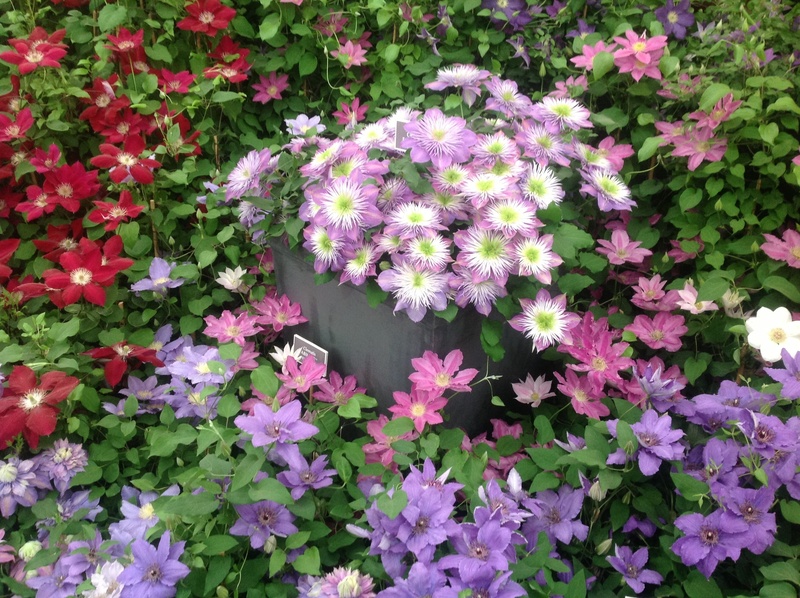Bring harmony to your space with inspiring Zen garden plans
Posted on 06/06/2025
Bring Harmony to Your Space with Inspiring Zen Garden Plans
Imagine stepping into your backyard or balcony and instantly feeling a wave of tranquility. With the right Zen garden plans, you can design a sanctuary that invites peace, mindfulness, and balance into your everyday life. In this comprehensive article, we'll guide you through the essentials of creating a Zen garden, draw inspiration from traditional and modern designs, provide practical layout advice, and offer tips for maintaining an oasis that soothes your soul.

What is a Zen Garden?
A Zen garden, also known as a Japanese rock garden or karesansui, is a unique outdoor or indoor space meticulously arranged to promote meditation and reflection. These gardens use simple, natural elements--mainly rocks, gravel, sand, moss, and occasionally plants or water features--arranged to embody key Zen principles: simplicity, balance, and harmony. Traditional Zen gardens emerged from Buddhist monasteries in Japan, serving as aids for contemplation and achieving zen or enlightenment.
Core Elements of Zen Garden Plans
- Rock formations: Symbolizing islands, mountains, or animals, carefully positioned stones are the foundation of every Zen garden layout.
- Gravel and sand: Raked in patterns representing water or waves, these materials evoke movement and foster mindfulness during the raking process.
- Moss and greenery: Offering soft textures and colors, moss and select plants evoke a sense of age and tranquility.
- Minimalism: Avoid clutter; every element should have meaning and intent in your harmonious garden space.
Benefits of a Zen Garden in Your Space
Strategically planning a Zen-inspired garden offers more than aesthetic beauty. Modern life is full of distractions, noise, and chaos. Bringing harmony to your surroundings helps cultivate a soothing retreat. Here's why you should consider creating your personal Zen garden:
- Reduces stress -- Focusing on raking patterns or arranging stones encourages meditation and mindfulness.
- Improves focus -- The act of designing and maintaining the garden sharpens concentration and attention to detail.
- Easy maintenance -- With minimal plants and features, a Zen garden is ideal for busy lifestyles or low-maintenance spaces.
- Flexible design -- Scalable from a large backyard to a desktop tray, there's a Zen garden plan for every space.
- Year-round appeal -- Unlike traditional gardens, a Zen garden provides visual interest in all seasons.
Planning Your Perfect Zen Garden
Before you create a Zen garden plan, consider your available space, budget, and desired atmosphere. Your vision can be as simple as a tabletop arrangement or as elaborate as a full backyard transformation. Here are thoughtful steps to guide your journey:
1. Choose Your Space
- Indoor Zen Gardens: Desktop trays or corner features bring serenity into offices and apartments.
- Outdoor Zen Gardens: Transform patios, balconies, or landscapes into inviting sanctuaries for relaxation.
2. Decide on a Design Theme
- Traditional Japanese Zen Gardens: Emphasize simplicity, asymmetry, and deliberate placement of stones and sand.
- Modern Zen Gardens: Add lighting, contemporary sculptures, or integrate with modern architectural elements for a fusion feel.
3. Select Materials and Elements
- Stones: Choose various shapes and sizes for visual and symbolic interest.
- Gravel/Sand: White or gray gravel is raked to suggest water flow or ripples.
- Moss/Low-Growing Plants: Use sparingly for color and contrast.
- Water Features (Optional): Small ponds, bamboo fountains, or gentle streams can encourage sound and movement.
- Bridges, Lanterns, or Benches: Enhance contemplative experience without detracting from minimalism.
4. Layout and Placement
Every element in your Zen garden should feel intentional and balanced--avoid symmetry for a more natural effect. Focus on:
- Asymmetry: Nature is rarely perfect or uniform; embrace organic arrangement.
- Negative Space: The "empty" areas are as important as what you add--leave room for the garden to breathe.
- Focal Points: Position a grouping of rocks or a solitary stone as a point of focus.
- Pathways: Stepping stones guide movement and influence perspectives within your harmonious garden.
Inspirational Zen Garden Plans for Every Space
Let's explore some inspiring Zen garden ideas that will fit various home and outdoor environments:
1. Minimalist Balcony Zen Garden
- Fill a rectangular planter with fine gravel, add three stones of varying sizes, and a small tuft of moss in one corner. Rake circular patterns around the stones each morning as a mindful ritual.
- Place a bamboo water fountain at one end to provide gentle sound and movement.
2. Traditional Courtyard Zen Garden
- Define the garden boundary with wooden, stone, or bamboo edging.
- Arrange two to three clusters of upright stones to represent mountains or islands.
- Add a dry stream bed with raked gravel, leading the eye from one focal point to another.
- Integrate a stone lantern and a bench for peaceful reflection.
3. Desktop Mini Zen Garden
- Use a shallow ceramic dish or wooden tray, fill it with white sand or gravel.
- Add a few pebbles, a small air plant, and a tiny rake for stress-relief at work.
- Swap elements seasonally to keep the space fresh and engaging.
4. Backyard Zen Sanctuary
- Combine raked gravel, stepping stones, and a moss carpet for varied textures.
- Create a grouping of large rocks as the central focal point.
- Add a bamboo fence or natural hedge for privacy and enclosure.
- Consider a simple pond or tsukubai (traditional water basin) for soothing sounds.
5. Modern Urban Zen Space
- Utilize concrete planters, sleek stones, and LED lighting for a contemporary twist.
- Highlight geometric patterns in the sand and incorporate glass or metal accents.
- Add meditation cushions or a minimalist bench for comfort and utility.
Tips for Creating a Zen Atmosphere
No matter the size or style of your harmonious Zen garden, remember the core guiding principles:
- Simplicity -- Avoid excess; each object should serve a purpose or evoke a feeling.
- Balance -- Use asymmetrical design and negative space to capture nature's imperfect harmony.
- Naturalness -- Embrace organic shapes, weathered stones, and natural materials.
- Peacefulness -- Minimize noise, distractions, and clutter near your garden to promote mindfulness.
Enhancing Your Zen Garden Experience
- Lighting: Use lanterns, solar lights, or soft spotlights to highlight key features at night.
- Seating: Provide a comfortable bench or mat to invite meditation and quiet moments.
- Sound: Consider a wind chime or gentle water feature for a multi-sensory retreat.
- Fragrance: Aromatic plants like lavender or Japanese pine add subtle scents to enhance relaxation.
Maintaining Your Zen Garden
One of the most rewarding aspects of a Zen garden plan is its ease of care. Here are some best practices to keep your space inviting and harmonious year-round:
- Regular raking: Keep gravel or sand patterns fresh; raking is also meditative in itself.
- Prune greenery lightly: Maintain clean lines without over-trimming for a natural look.
- Remove debris: Clear fallen leaves or litter promptly to preserve serenity and order.
- Refresh elements: Replace weathered stones, sand, or broken features as needed to sustain beauty.
- Monitor moisture: Ensure proper drainage and avoid overwatering moss or plants.
Inspiration from Traditional Zen Gardens in Japan
Many famous Japanese temple gardens have become iconic for their beauty and philosophy. If you're seeking inspiration to bring harmony to your space with Zen garden plans, consider these traditional marvels:
- Ryoan-ji (Kyoto): Renowned for its fifteen stones set in white gravel--no matter where you stand, only fourteen are ever visible, symbolizing the unattainable nature of perfection.
- Daisen-in (Kyoto): An intimate masterpiece representing a metaphorical journey through life via rock arrangements and gravel streams.
- Ginkaku-ji (Silver Pavilion, Kyoto): Features raked sand cones and sculpted moss--perfect examples of Zen minimalism and natural elegance.

Frequently Asked Questions About Zen Garden Planning
Can I design a Zen garden in a small apartment?
Absolutely! Use tray-style desktop Zen gardens or create a compact arrangement in a corner. Focus on a calming focal stone, some fine gravel or sand, and a little greenery.
How much does it cost to create a Zen garden?
Costs vary widely, from $20 for a mini Zen garden kit to several thousand for a custom outdoor oasis. DIY enthusiasts can build beautiful gardens with budget-friendly stones, gravel, and thrifted elements.
What is the best time of year to start a Zen garden?
Zen gardens can be created year-round, especially if indoors. For outdoor spaces, spring and early autumn are ideal for comfortable landscaping and planting moss or groundcover.
What plants work best in Zen gardens?
Moss, ferns, evergreens, junipers, Japanese maple, and bamboo are traditional choices. Select hardy, low-maintenance plants suited to your climate and garden size.
How do I make my Zen garden sustainable?
Opt for recycled materials, native plants, and minimal water features. Use permeable gravel and locally sourced stones to reduce environmental impact.
Start Your Zen Journey Today!
In a world that moves quickly, creating a serene retreat is more important than ever. With thoughtful Zen garden plans, anyone can introduce tranquility, balance, and beauty into their home environment. Whether crafting a compact desktop garden or a sprawling backyard sanctuary, the principles of Zen--simplicity, mindfulness, and harmony--remain at the heart of your design. Embrace the philosophy, select natural materials, and arrange each element with intention to cultivate a lasting sense of peace.
Bring harmony to your space with Zen garden plans and experience the profound benefits of a mindful retreat, right at your doorstep. With inspiration and planning, you'll enjoy a beautiful and meaningful garden for years to come.
- Find harmony in every stone, every pattern, and every peaceful moment within your Zen garden.
- Begin your garden journey today for a more balanced, mindful lifestyle.
- Let your next landscaping project be an inspiring, soul-nourishing Zen garden plan!
Latest Posts
Botanical Elegance: Classic Hedge Trimming Shapes and Techniques
Embarking on a Garden Makeover Adventure
Building a Wind-Defensive Garden Retreat

